Chapter 3 2. The Greeks
In an obscure corner of the Mediterranean lies a small rocky peninsula which for nearly two centuries has laid the entire foundation for life in the world today, including politics, literature, drama, sculpture, chemistry, physics, God Know what else.How is this possible?For centuries, people have been puzzled by it, and philosophers have spent more or less time in their lives looking for answers.
The domineering historian, unlike the specialists in chemistry, physics, astronomy, and medicine, always regards attempts to discover the "laws of history" with malicious contempt.What is useful in the study of tadpoles, bacteria, and meteors seems useless in the study of humans.
Maybe I'm wrong, but I think such laws should exist.It is true that we have achieved little so far.However, we have not explored enough.We are too busy accumulating facts to boil them, liquefy them, sublimate them, and extract from them the rare crystals of wisdom that may be of some value to our peculiar mammals.
I ventured into this new field of research with trepidation.Here I temporarily borrow a famous quote from a scientist, and present the historical principles as follows.
According to the best writings of modern scientists, life (as distinct from non-living organisms) begins when all the physical and chemical components are in ideal proportions to form the first cell.
Translating the above words into the concept of history, it is:
"Only when all races, climates, economics, and political conditions are at or near an ideal proportion in an unsound world will advanced forms of civilization suddenly and seemingly automatically come to the fore."
Let me cite a few negative examples to elaborate on this point of view.
A species whose mind is still at the caveman level will not prosper, not even in Paradise.
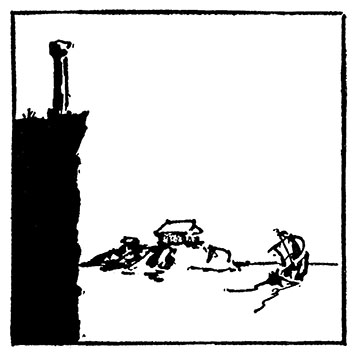
Greece
Rembrandt could not paint pictures, Bach could not compose Passions, Braxi Telles couldn't make statues either.
If Darwin had had to earn a living working in a Lancashire factory, he would have contributed nothing biologically.Alexander Graham Bell couldn't have invented the telephone if he had been an involuntary slave living in a remote village on a Romanov estate.
Egypt was the birthplace of the first advanced civilization, with a pleasant climate, but the indigenous population was not very strong, aggressive, and had poor political and economic conditions.The same is true of Babylon and Ascilia.The Semites who later moved to the valleys of the Tiglis and Euphrates were tall, energetic, and the climate was not a problem, but the political and economic environment was far worse.
Palestine's climate was nothing to brag about, its agriculture was poor, and there was little commerce beyond the caravan lanes that cut across the country between Asia and Africa.Moreover, the politics of Palestine were completely controlled by the priests of the Jerusalem monastery, which of course did not help the development of individual enthusiasm.
Phoenicia's climate is beyond reproach, and the people are tall and powerful, and the conditions for doing business are good. However, the country suffers from a serious economic imbalance.A small group of shipowners controlled all the wealth and established a strict commercial monopoly.In this way, the early Atayal and Sidon regimes fell into the hands of the rich.The poor people were deprived of even the minimum right to work hard, and they became indifferent and indifferent. In the end, Phoenicia followed the same pattern as Carthage, and was reduced to ruins due to the ruler's short-sightedness and selfish greed.
In sum, at the centers of every early civilization, the necessary ingredients for success were always lacking.
When the miracle of perfect balance finally occurred in Greece in the fifth century AD, it lasted only a short time, and, strangely enough, even this happened not at home, but in the colonies across the Aegean Sea.
In another book I describe the famous bridges of islands that connected the continents of Asia and Europe, through which Egyptian, Babylonian, and Cretan traders came to Europe in pre-written times.Their landing not only opened up trade, but also brought Asian ideas to Europe. Their footprints remained on a narrow strip on the west coast of Asia Minor, a place called Evonia.
At this time, hundreds of years before the Trojan War, some tribes in mainland Greece conquered this territory ninety miles long and only a few miles wide, and successively established colonial cities, the most famous of which were Ephesus, Phossa, Alice Li and Miletus.Around these cities the conditions of success matured in perfect proportion, and civilization developed to such a height that subsequent civilizations at most sometimes matched them, but never surpassed them.
First, the colonial city was inhabited by the most active and enterprising people from more than a dozen nationalities.
Second, it was home to the wealth of trade between the Old and New Worlds and between Eurasia and Eurasia.
Third, the government representing the interests of the colonial masters gave free people the opportunity to give full play to their individual talents.
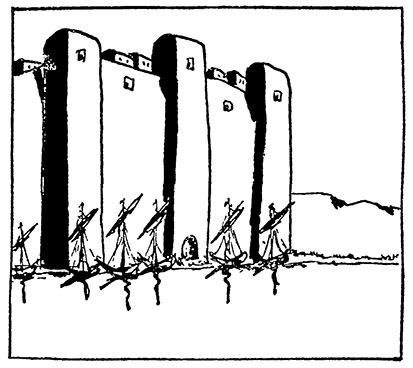
commercial city
There's also a reason I don't mention the climate, because it doesn't really matter much for a business-only country.Ships can be built and cargo can be unloaded, rain or shine, and residents are not interested in the daily weather forecast as long as the port is not freezing and towns are not flooded.
The weather in Evonia is extremely conducive to the development of the intellectual class. Before the advent of books and libraries, knowledge was passed on by word of mouth. The town's water pump became the earliest center of social activities and the oldest university.
The first of them on record, the true founder of modern science, was a figure of questionable background.Not that he robbed a bank or killed his family and fled to Miletus from nowhere to do so.No one knows who his ancestors were, was he a Biosian or a Phoenician? (In the jargon of learned anthropologists) Nomads or Semites?
This shows what a prominent world center the mere ancient city of McAnder Pass was at the time.Its people came from all over the place (like New York today), so people judged their neighbors by appearances and never paid much attention to his family.
This book is not a handbook on the history of mathematics and philosophy, so there is no need to devote more space to explaining Thales' ideas.Suffice it to mention that he tends to be tolerant of new ideas.This fashion prevailed in Evonia, when Rome was only a small merchant town by an unknown muddy river in the distance, the Jews were captives of the Asilians, and the north and west of Europe were still howling wolves. wilderness.
In order to understand the reasons for this development, we must understand the changes that have taken place in Greece since the Greek princes crossed the Aegean Sea and plundered the treasures of the castle of Troy, when those famous heroes were only products of the most primitive civilization. Overdeveloped children, to whom life is but one long and glorious struggle, full of thrills, wrestling, running, and all that kind of sport, and what we are now, if we were not buried in our daily work for our bread and bananas , but not unwilling to engage in these activities.
These fresh-blooded warriors treat their God in a frank and simple manner, just as they treat all the serious problems of daily life.The gods on Mount Olympus once controlled everything about the Greeks in the tenth century BC, but they all had real human images, not much different from people on earth.When, where, and how people on Earth parted ways with their God, the details have been a mystery that no one has ever figured out.However, the deep friendship that the God outside the Nine Layers has never stopped for his prostrate subjects has always been kind and personal, which makes the Greek religion show its unique charm.
Well-educated children will of course know that Zeus is a very powerful ruler, with a long beard, and when he occasionally plays lightning bolts violently, the world seems to have come to an end.Although children are told tales of gods in their cradles, as soon as they are old enough to read the old tales for themselves, they begin to ponder the weaknesses of these terrible gods.The gods they saw now were masquerading figures under the lights of a merry house party--they played endless pranks on each other, took part in the political disputes of their mortal friends, quarreled violently with each other, so that, Every controversy in the world of Greece must have caused an uproar among the gods of heaven.
Of course, although Zeus has human weaknesses, he is still a very great God and an extremely powerful ruler. For the sake of safety, it is best not to offend him.However, he is still "reasonable". The meaning of this word is now well understood by lobbyists in the Washington Congress who specialize in lobbying activities. Zeus is indeed reasonable.Most of all, he has a sense of humor and doesn't take himself and his kingdom too seriously.
Maybe that's not the best thing to say about Zeus, but it has obvious benefits.In ancient Greece, there was never a strict canon, stipulating what mortals should regard as truth and what should be regarded as falsehood.Since there is no "creed" in the modern concept, as well as stern teachings and professional priests who carry out teachings on the gallows, people all over the country can modify religious ideas and the concept of the kingdom of heaven according to their own likes and dislikes.
The Thessalians, who lived not far from Mount Olympus, worshiped their venerable neighbors, the gods of Olympus, more certainly than the Asopi, who lived in the small village of the distant Laconian Gulf. The people of Athens are much worse. The Athenians think that they are protected by the patron saint Athena, and they can be rude to her father Zeus, while the Acadians, who live in the valleys far from the commercial routes, insist on a more simple way. Faith, what irritates them most is the frivolity with which such serious matters as religion are treated.The inhabitants of Phocis depended on people's pilgrimage to Delphi for their sustenance, so they firmly believed that Apollo (the god who received pilgrimage at the profitable holy place) was the greatest of all gods, the one who traveled thousands of miles , as long as you have one or two drachmas in your pocket, you should go to worship Apollo.
The Jews only believe in one God, which is a sign that distinguishes them from other nations.At that time, the Jews were all gathered in one city, and their power grew stronger day by day, and finally defeated all the comparable pilgrimage sites, thus maintaining the monopoly of religion for nearly a thousand years, otherwise it would be impossible for people to believe in only one God .
Such conditions are not available in Greece.Both the Athenians and the Spartans tried to make their city the recognized capital of all Greece, but both failed.Their efforts led only to a long and fruitless civil war.
A nation of such strong individuality certainly offers broad prospects for the development of independent thought.
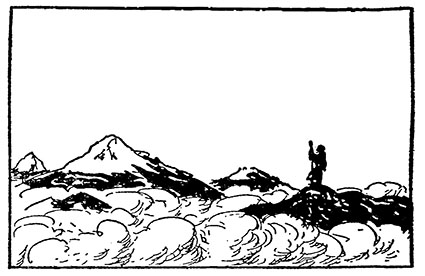
philosopher
and "The Odyssey" are sometimes called "the Bible of the Greeks".In fact, they have nothing to do with the "Bible", they are just ordinary reading materials.Never stepped into the scope of the "holy book".These two books tell the adventures of the mighty heroes who are fondly regarded as the ancestors of the Greeks of the day.These two books bring together a lot of religious knowledge, because the gods, without exception, help each other in the mutual struggle of mortals, forget about serious things, and just enjoy the ancient and rare events unfolding on their own territory. Big fight.
Whether Homer was directly or indirectly inspired by Minerva and Apollo was never considered by the Greeks.Homer's epic is a glorious page in the history of literature. It makes good companionship on long winter nights and makes children proud of their nation.
That's all there is to it.
The city is full of intellectual and spiritual freedom, filled with the choking smell from the ships from all over the world, also decorated with rich oriental silk and satin, and wafts the laughter of people who eat all day long: Thales is born Here, work here, study, and finally die.If the conclusions of his explorations are very different from those of others, then please remember that the influence of his ideas has certain limitations. The people of Miletus generally know Thales, just as the average New Yorker knows. I have heard the same name as Einstein for a long time.If you ask a New Yorker who Einstein is, he will say that Einstein is a guy with long hair, a pipe, and a violin. He also wrote a story about a man walking from one end of the train to the other. in the Sunday newspaper.
This pipe-smoking, violin-playing eccentric caught the fleeting ray of truth and ultimately overturned, or at least drastically changed, the conclusions of sixty centuries of science.But the incident failed to catch the attention of millions of slacker New Yorkers who only remembered that there was a science of mathematics when their favorite hitters were thwarted in their attempts to overthrow gravity.
Ancient history textbooks usually avoid this conundrum by printing "Thales of Miletus, founder of modern science" as a prevarication.We can even imagine such a headline in the "Miletus" newspaper at that time: "Local graduates discover the secret of real science".
I am not sure exactly when, where, and how Thales surpassed the old paths traveled by his predecessors and created a new path alone, but one thing is certain, he did not live in a vacuum world without knowledge, he Wisdom is not invented out of thin air.In the seventh century BC, people were already exploring many new scientific fields, and there were a large number of materials in mathematics, physics and astronomy that scholars could refer to at any time.
Babylonian planet-watchers are already exploring the skies.
After careful calculation, the Egyptian architect placed two pieces of granite weighing a million tons on top of the tomb inside the pyramid.
Mathematicians in the Nile Valley studied the movement of the sun, predicted the times of dry and rainy seasons, provided farmers with calendars, and regularized agricultural labor.
Yet those who provide answers to these practical questions still see the forces of nature as the direct expression of the will of an invisible God who rules the seasons, the planets, and the tides, just as the president's parliamentarians control the departments of agriculture, post and telecommunications, and Same as Treasury.
Thales disagreed with this view.But he, like most well-educated people of his time, was reluctant to discuss it in public.If the fruit seller on the seashore was frightened by the strange sight and prostrated himself on the ground when he encountered a solar eclipse, and begged for the name of Zeus, that would be his own business. Even elementary school students would have predicted that a solar eclipse would occur on May 25, 585 BC, and that the city of Miletus would be plunged into relative darkness for a few minutes.
On the afternoon of this famous eclipse, the Persians and Lydians were fighting on the battlefield.It is believed that they stopped killing each other because of the lack of light.Thales did not believe that the gods of Lydia followed the precedent that occurred in the Battle of Agalon Valley a few years ago and performed a miracle-suddenly extinguishing the light of the kingdom of heaven, so that the victory could be secured on their favored side hands.
The state that Thales has reached (this is where his great achievement lies) is that he dares to regard all natural phenomena as the result of being governed by eternal laws, the embodiment of eternal will, and not the result of arbitrary domination of gods as people have always imagined.
It seemed to him that a solar eclipse would have occurred even if nothing more significant had happened that afternoon than a dog fight in Ephesus Street, or a wedding feast in Halich.
Through scientific observation, Thales came to a logical conclusion.He attributed the generation of all things to a universal and necessary law, and made such a conjecture (to a certain extent, his conjecture was correct): all things in the world came from water, and water surrounded the world from all directions, and since Genesis time to coexist with the world.
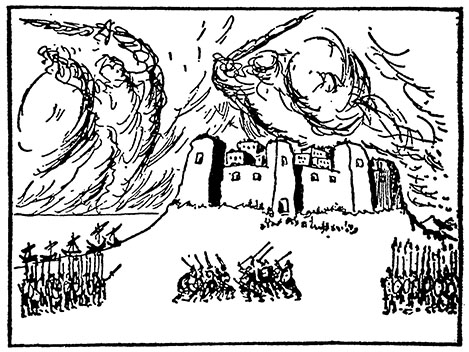
greek legend
Regrettably.We do not have any handwritten manuscripts left by Thales, when it was already possible for him to express his thoughts in words (the Greeks learned the alphabet from the Phoenicians), but none of his manuscripts survive today, and we have no knowledge of his The understanding is all obtained from the scraps and half-claws provided in the books of his contemporaries, and this is how Thales's personal life is known.Thales was a businessman and had contact with people from all corners of the Mediterranean. By the way, most of the early philosophers were businessmen, which was also a major feature of the time.Philosophers are "lovers of wisdom".But they never lose sight of the fact that the secret of life lies in the living things.They believe that the view of "seeking wisdom for wisdom's sake" is just like the fallacy of "art for art's sake" and eating for food's sake, causing endless harm.
In their view, there are people with various personalities in the world, good, bad, and in-between, which is the highest standard for measuring everything in the world.Therefore, in their spare time, they patiently study man, an elusive animal, and study man according to his true colors, not based on preconceived fabrications.
This allows them to live in harmony with other people, greatly expanding their influence.This is more effective than tirelessly preaching and pointing people to the shortcut to the Datong world.
They seldom put forward strict rules and regulations as guidelines for restricting people's activities.
However, they showed by their own example that once the power of nature is truly understood, the inner peace of the soul upon which all happiness rests is bound to be obtained.After a philosopher has won the goodwill of the people around him in his own circle of life, he has full freedom to study, explore and investigate, and even go deep into the field that is generally considered to be only God can intervene.As the herald of this new Gospel, Thales dedicated a life of brilliance to this useful cause.
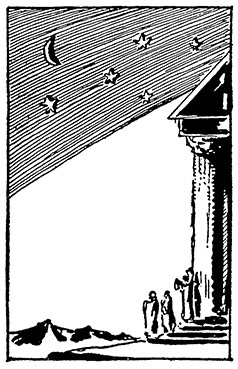
astronomer
He was allowed to die in bed despite his dissection of the Greek world, his examination of every detail, and his open questioning of what most people had taken for granted through the ages.Even if someone had asked him to explain his heresy, we have no way of checking it now.
Once Thales showed the way, followers flocked to him.
Anaxagoras, for example, left Asia Minor and came to Athens at the age of thirty-six. He has been a "sophist" since then, and he also worked as a private teacher in several cities in Greece.He has a lot of research on astronomy.During his lectures, he pointed out that the sun is not a chariot driven by a god as commonly recognized by ordinary people, but a red and hot fireball, ten million times larger than the whole of Greece.
This theory did not invite disaster, nor did Heaven strike him with a thunderbolt for his audacity.So he pushed his theory one step further, boldly proposing that the surface of the moon is covered with mountains and valleys, and finally he hinted that there is a kind of "seed" in the world, which is the origin and destination of all things, and has been born since the birth of the universe. exists.
But Anaxagoras was wading into dangerous territory, for he was talking about familiar things, and many later scientists had similar experiences.The sun and the moon are thousands of miles away from the earth, and ordinary philosophers don't care what to call them.But the teacher's suggestion that everything in the world grows from a primitive substance called a "seed" is undoubtedly too much.His assertion runs counter to the story of the god who repopulated the world after the Flood by turning pebbles into countless men and women.All the children of Greece have heard this story in their childhood, and to deny its truth, which is so solemn and solemn, would do so much harm to the tranquility of the existing society, and would make the children doubt the wisdom of their elders, that it is absolutely forbidden.As a result, Anaxagoras became the target of a massive attack by the Athenian Parents League.
Had it been an early period of monarchy or republic, the rulers of the city-state would have been strong enough to protect a teacher of unpopular teachings from the stupid persecution of illiterate ancient Athenian peasants.But in Athens at that time, democracy had already reached its peak, and the freedom of individuality was no longer what it used to be.Moreover, Pericles, who was despised by most people at the time, was the astronomer's favorite student, which opened the door for the court to convict him, allowing people to set off a political movement against the old dictatorship.
A law proposed by a priest named Offitus, who was magistrate in one of the most populous suburbs, was accepted.This law requires that "all those who do not believe in the existing religion and hold different views on all gods shall be punished immediately." According to this, Anaxagoras was thrown into prison.In the end, however, the enlightened forces in the city prevailed.Anaxagoras was released from prison after paying a very small fine.He moved to Asia Minor, where he lived for more than seventy years, named Haoyue, and lived until 428 B.C. before dying.
This incident shows the futility of official efforts to suppress the development of scientific theories.Although Anaxagoras was forced to leave Athens, his thoughts were left to later generations.Two centuries later, a man named Aristotle took his idea and used it as the basis for his own scientific hypothesis.After a long dark period of a millennium, Aristotle's ideas were passed on directly to Ibn Lucid (commonly called Averroes), a great Arab physician He vigorously spread Aristotle's ideas among the students of the university. He combined the theory with his own observations and wrote many books.The books were transported in time across the Pyrenees to the Universities of Paris and Boulogne, and translated into Latin, French and English.Western and Northern Europeans embraced the book's ideas, and they are now an essential part of any science primer, as innocuous as a multiplication table.
Now we return to the subject of Anaxagoras.For almost a generation after his trial, Greek scientists were granted permission to teach doctrines that departed from folk superstition.At the end of the fifth century BC, a second event happened.
This time the victim was Protagoras, a wandering teacher from the village of Abdella in the Evonia colony in northern Greece.This area already has a bad reputation for being the birthplace of Democritus.Democritus was the original "smiling philosopher" who posited the law that "no society is of value except that which affords the greatest happiness and least suffering to the greatest number." As a result he was viewed as a radical , should be placed under the surveillance of the security system.
Protagoras was deeply influenced by this idea.He came to Athens, and after several years of study, he announced to the people that man is the measure of all things in the world; Used to make life better and more enjoyable.

Protagoras
The point certainly hits home and is sure to shake people's faith more than any written or spoken word has ever done.Moreover, the theory came out at a time when the war between Athens and Sparta was at stake, and the people, frustrated by defeat and disease, had no way out.Obviously, this is not the time to cast doubt on God's supernatural powers and provoke God's wrath.Protagoras was accused of being an atheist and was ordered to change the theory to make it subject to the courts.
Pericles could have protected him, but by this time he was dead.Protagoras, though a scientist, had no interest in martyrdom.
He escaped.
Unfortunately, on the voyage to Sicily, his ship ran aground.He probably drowned instantly, as nothing has been heard from him since.
Another person who was brutally persecuted by the people of Athens was Diagoras.In fact, he is not a philosopher, but a young writer.He did not get God's help in a lawsuit, so he poured out his personal resentment on God.For a long time, he brooded over his suffering, resulting in a great change in his thinking.He went about slandering in profanity the "sacred mysteries" revered by the northern Greeks.His audacity earned him the death penalty.But on the eve of his execution, the poor wretch had the opportunity to escape.He came to Corinth, continued to curse the gods of Olympus, and finally died of too much anger.
The intolerable prejudices of the Greeks finally developed to extreme proportions, exemplified by the notorious death sentence of Socrates by the courts.We have a detailed record of this.
As long as it is said that the world remains the same, and that the ancient Athenians were as narrow-minded as the later generations, people will inevitably point to the example of Socrates as a strong proof of the stubbornness of the Greeks.But today, after our exhaustive investigation, we understand the situation more clearly.The life of this street speaker was ordinary, brilliant but annoying, and he made a direct contribution to the free spirit of thought that prevailed in fifth-century BC ancient Greece.
At that time, the common people still believed in the existence of the gods, so Socrates described himself as a prophet representing God. voice) means, but one can fully comprehend the fact that he holds a negative attitude towards things that people around him worship as gods, and he also dismisses traditional customs.In the end, those in power killed the old man, and his theological views (although the official incrimination was far-fetched to persuade everyone) actually had little relevance to the outcome of the trial.
Socrates was the son of a mason.His father had many children and his income was meager.The kid didn't have the money to go to a regular university, because philosophers at that time paid attention to benefits, and they asked for 2,000 yuan for teaching a subject.Moreover, in Socrates' view, pursuing pure truth and studying useless scientific phenomena is simply a waste of time and energy.In his eyes, as long as a person is good at cultivating his own beliefs, it doesn't matter if he doesn't have a knowledge of geometry, and knowing the natural phenomena of comets and planets is useless for saving souls.
This unassuming little man with a sunken nose and disheveled clothes spent his days arguing with the vagrants in the streets and alleys, and at night he listened to his wife's nagging (his wife had to do laundry for others in order to support a large family, while earning a living is regarded as the least noteworthy detail of existence).He participated in many wars and expeditions, and was a respected veteran; he was a former member of the Senate of Athens, and among the many teachers of the time, he was chosen to be killed for his beliefs.
In order to understand what happened, we must understand what the political situation in Athens was like when Socrates was making painful but rewarding efforts for human knowledge and progress.
Throughout his life (he was over seventy when he was executed), Socrates tried to tell people that they were wasting their lives, that their lives were meaningless, that they were wasting too much time in empty joys and empty victories , squandering all the bounties of the great God, seeking to satisfy even for a few hours the gratification of vanity and ambition.He completely believed in the sublime destiny of man, thus breaking all the boundaries and forbidden areas set by the old philosophical world, even going further than Protagoras.Protagoras taught people: "Man is the measure of all things in the world." Socrates claimed: "Man's invisible consciousness is (or should be) the final measure of all things in the world; it is not God who shapes destiny, but we Own."
Socrates' speeches before the judges (a court of five hundred judges, to be precise, handpicked by Socrates' political enemies, some of whom could read and write), were of interest to any audience, whether they were Those who hold a sympathetic attitude are the most inspiring and easy-to-understand truths.
The philosopher argued: "No one in the world has the right to order others to believe, or to deprive others of the right to think as they please." , wife and family, and will succeed. But no one can reach correct conclusions without a thorough study of the origins and consequences of the issues, so there must be full freedom to discuss all issues, and there must be complete freedom from official interference."
Unfortunately, this defendant stated the wrong assertion at the wrong time.As early as after the Peloponnesian War, the relationship between rich and poor, master and servant in Athens was in a state of tension.Socrates is a "moderate element"-a liberal who sees the pros and cons of both sides and tries to find a compromise to satisfy all reasonable people. Don't make a move to deal with him.
By 403 BC, those 100% democrats had completely controlled the kingdom, drove the nobles away, and Socrates was doomed.
His friend, knowing all this, advised Socrates that it would be wise to leave the city as soon as possible.
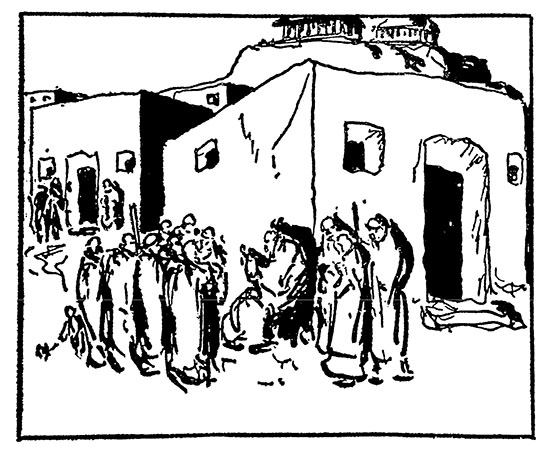
Socrates
Socrates has no fewer enemies than his friends.For more than half a century, he has been acting as a "oral critic", a very smart busy man, good at exposing the disguise and ideological deception of those who claim to be the pillars of Athenian society in broad daylight, and even became a hobby .Over time, his name became a household name in Greece.He talked about some interesting things in the morning, and in the evening everyone in the city knew about them.Someone made up a play for him.When he was arrested and imprisoned, there was no one in all Greece who did not know all the little things about his life.
Those who played a leading role in the trial (such as the venerable grain dealer who could neither read nor write, but only because he knew God's will and became the hardest in the prosecution) were convinced that they were doing their duty to society by interrogating Socrates , to rid the city of one of the most dangerous of the so-called "intellectuals," a man who could only teach slaves laziness, crime, and discontent.
It is quite interesting that even in this environment, Socrates still defended himself with superb eloquence, and even the overwhelming majority of the jury was inclined to release him.Socrates, they suggested, could be absolved if he gave up the terrible habits of debate, quarrel, preaching, meddling with other people's preferences, and pestering them with endless questions.
But Socrates refused.
"It can't be done!" he cried, "as long as my conscience and that little voice of mine keep me going, and show people the true way to reason, I'll keep holding on to the people I meet. Everyone, tell him what I think, and never think about the consequences."
Thus, the court had no choice but to sentence the prisoner to death.
Socrates was suspended for thirty days.The holy ship that goes to Delos to worship once a year has not yet returned. According to the laws of Athens, executions are not allowed during this period.For a whole month, the old man stayed safely in the cellar, wondering how to improve his logical system.He had many chances to escape, but he refused them all.He has lived a worthwhile life and fulfilled his duties. He is tired and ready to die.Until the time of execution, he was still talking to his friends, enlightening them with the truth he pursued, and persuading them not to use their brains in the material world, but to think more about the spiritual world.
Then, he drank the poisonous poison and lay down on the bed. From then on, all arguments came to an end with his long sleep.
For a time, Socrates' disciples, terrified by the overwhelming public outrage, thought it best to avoid the venues of the past.
But when they saw that everything had calmed down.
Then he came back and resumed his old career of public lectures.In the more than ten years since the death of the old philosopher, his ideas have spread more widely than before.
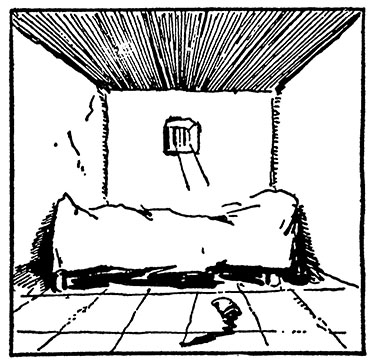
death of socrates
At the same time, the city was going through very difficult times.Five years have passed since the war for the leadership of the Greek peninsula, in which the Athenians were defeated and the Spartans won the final victory.This is a great victory of physical strength over intellectual power.Needless to say, this situation is short-lived.The Spartans never wrote a word worth recording, nor contributed to human knowledge (except for some military tactics, which are still used in football games today).The Spartans believed that with their rival's walls knocked down and the Athenian fleet depleted, they were done.但是,雅典人的思想却没有因此而失去其敏捷的天资。伯罗奔尼撒半岛战争结束后十年,古老的比雷埃夫斯港就又云集了世界各地的船只,在希腊联合舰队中,雅典的海军将领又一次身先士卒。
况且,伯里克利的努力虽然没有得到同代人的重视,却使雅典成为世界文化的中心,就象公元前四世纪的巴黎一样。罗马、西班牙和非洲的有钱人家都想使孩子受到时髦的教育,即使孩子只被准许参观一下卫城附近的任何一所学校,家长也会为此而受宠若惊。
我们现代人要正确理解古代社会是非常困难的,在那个世界里,生存被看得至关重要。
在早期基督教的影响下——当时的基督教是一切异教文明的死敌——罗马人和希腊人被视为丧尽天良的家伙。他们随意崇拜一些不伦不类的天神,剩下的时间便大吃大喝,饮整桶的萨莱诺酒,听埃及舞女的缠绵细语,间或还奔赶战场,仅为嗜血的乐趣而残杀无辜的日耳曼人、法兰克人和达西雅人。
不可否认,无论是在希腊还是在罗马,都有很多商人和战争贩子,在罗马可能更多一些。他们把苏格拉底在法官面前精辟阐述的伦理道德抛到脑后,积攒起万贯家私。正是因为这些人非常富有,人们才不得不对他们忍气吞声。但是,这些人在社会中毫无威信,因此不可能被推崇为当时文化的化身。
我们发掘了埃帕菲罗迪特的公寓,这家伙同尼禄把罗马及其殖民地洗劫一空,从而发了数以百万计的大财。我们望着这个老投机商用不义之财建造起来的拥有四十间房屋的宫殿的废墟,禁不住会摇头叹息:“太腐败了。”
继而,我们坐下来读一读爱比克泰德的著作。爱比克泰德曾经当过埃帕菲罗迪特这个老恶棍的奴仆。然而读了他的书,我们却感到是在与一位古今少有的高尚显赫的灵魂相交。
我知道,人们喜欢关起门来随意对自己的邻居或邻国品头评足,但是不要忘记,哲学家爱比克泰德不愧是他所生活的那个时代的名符其实的代表,正象朝廷中的势利小人埃罗菲罗迪特也具有他的代表性一样。二十个世纪以前的人们追求尽善尽美的生活,这种欲望也不亚于如今的人们。
当然,那时的尽善尽美与今天的尽善尽美在概念上有着天壤之别,这一点毋庸置疑。那时的尽善尽美是一个深深欧化了的产物,与东方社会毫不相干。但是,那些建立了自己的理解、把它作为生活中追求的最崇高目的的所谓“野蛮人”,毕竟是我们的祖先,正是他们慢慢地发展了一种生活的哲理,并广为人们所接受。如果我们以为良心纯正,衣食简朴,加上身体健康和收入适足便是知足常乐的最好保障,那么这个哲理我们也不妨予以认可。灵魂的归宿并未能引起那些“野蛮人”的很大兴趣。他们仅仅把自己视为有知识的特殊动物,高踞于地球其它生物之上,他们常常谈及上帝,但那只是我们如今经常用“原子”、“电子”、“乙醚”一类词汇一样。在他们看来,万物的起源必须有一个名称,因此在爱比克泰德说到宙斯时,那只是一切尚未得出答案的难题的代号,就象欧几里德在解题时用X和Y作为代号一样,可以含义庞大,也可以微不足道。
那时人们最感兴趣的是生活,而仅次于生活的,便是艺术。
他们研究包罗万象的生活,并按照苏格拉底创造推广的分析方法,取得引人注目的成果。
有时他们出于寻求完美精神世界的热情,走到了荒唐的极端,这是令人遗憾的。不过人非圣贤,孰能无过。但柏拉图却是古代众多理论家中唯一的一个出于对完美精神世界的炽爱而鼓吹不宽容的人。
正如人们所知道的,这个年轻的雅典人是苏格拉底的心爱门生,是苏格拉底的文字记载人。
他收集了苏格拉底曾经说过或想过的一切,编成对话,可以当之无愧地称做是《苏格拉底福音书》。
他完成这个工作后,便开始对他老师的理论中的一些晦涩难解之处进行详尽的解释,撰写了一系列文采横溢的文章。最后他开了许多课,使雅典人公正和正义的主张越过希腊国界,流传四海。
在全部活动中,他所表现的全力以赴的忘我精神简直可以和圣徒保罗媲美。不过,圣徒保罗的一生极为惊险,他从北到南,从西到东,把上帝的福音传播到地中海的每个角落,而柏拉图却从未离开过他那舒适花园的坐椅,让世界各地的人来拜见他。
他的世家出身和可以使他自立的财产使他能够如此行事。
首先,他是雅典人,从他母亲的血统可以追溯到索伦。其次,他到了法定年龄就继承了一笔足以维持富裕生活的财产。
最后,他具有出众的口才,任何获准聆听他在柏拉图大学授课的人,哪怕只是听过很少几次讲课,都心甘情愿跋山涉水来到爱琴海。
至于其它方面,柏拉图具有许多当时青年人的特点。他当过兵,但对军事毫无兴趣。他参加户外运动,是摔跤和赛跑的能手,却又从未榜上留名。他和当时的青年一样,也把很多时间花在国外旅行上,曾跨越爱琴海,在埃及北部做过暂短停留,重温了他那大名鼎鼎的祖父索伦走过的历程。不过他回国后就没再外出,在雅典郊区赛菲萨斯河畔一座风景宜人花园的阴凉角落里传授他的教义长达五十年之久,“柏拉图学园”也就因此而得名。
柏拉图最初是数学家,后来渐渐转向政治,在这个领域里,他为现代政治机构奠定了理论基础。他是坚定的乐观主义者,相信人类正在持续不断地进化,他认为,人的生命是从低级向高级的缓慢上升,世界从美好的实体发展到美好的制度,再从美好的制度中产生美好的思想。
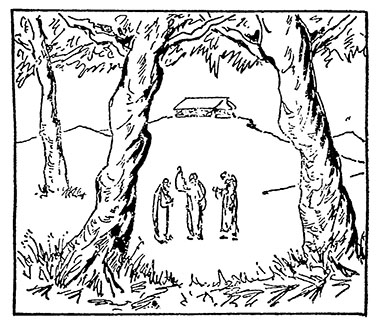
柏拉图学园
他的这一想法写在羊皮纸上倒是很有吸引力,但是当他试图把想法转化成具体原则、为他的理想的共和国提供理论基础时,他追求公正和正义的热情就变得非常强烈,以至于无法容忍其它任何考虑。他主张的共和国一直被那些纸上谈兵的乌托邦建设者们视为人类完美无缺的最高境界。这个奇特的共和国组织不论是在过去还是从现在来看,都孕育着许多偏见,那是一些退伍上校们独有的偏见,这些人享受着充裕的个人收入,生活舒适,却喜爱与政界周旋,并极为鄙视下层社会的人,以图以此来显示自己的“地位”,分享一下只有“上流社会”才有的那些特权。
不幸的是,柏拉图的书在西欧中世纪学者中颇受推崇。在这些学者手里,举世闻名的共和国变成了向宽容精神开战的可怕武器。
这些才学渊博的学者故意要忘记,柏拉图得出结论的背景是与他们生活的十二、十三世纪的情况毫不相同的。
譬如,按照基督教的教义。柏拉图根本不是一个虔诚的人。他对祖先们敬仰的神明深恶痛绝,把它们看成是马其顿的乡下佬,俗不可耐。他曾经为特洛伊战争纪年表中记载的有关神明的丑恶行径而深感耻辱。但随着他走向成年,年复一年地坐在小橡树园里,对家乡各个小公国之间愚蠢的争吵也越来越义愤填膺了。他看到了旧民主理想的彻底失败,逐步相信,对于一般平民来说,宗教是必不可少的,不然他想象中的共和国就会立即陷入混乱。于是他坚持认为,他的模范社会的立法结构应该制定出限制所有居民行动的明确规定,无论是自由人还是奴隶,都无一例外地必须服从,否则就判处死刑或监禁和流放。看起来,这一主张是对苏格拉底在不久前曾为之英勇奋斗的宽容精神和宗教信仰自由的彻底否定,其实这也是柏拉图理论的本意。
这个世界观转变的原因并不难寻找。苏格拉底扎根于民众之中,而柏拉图却惧怕生活。他为了逃避丑陋的世界,躲到了自己臆想的王国中。他当然知道自己的梦想——根本不可能实现。各自为政的城邦并存的时代,不论是想象中的还是实际存在的,都已经一去不复返了。集权统治的时代已经开始,整个希腊半岛日后很快归并为广阔的马其顿帝国,从马里查河一直延伸到印度河畔。
但是,这个古老的希腊半岛上难以驾驭的各个民主城邦尚未落入征服者的巨掌的时候,却出现了一位傲立于群雄之上的最伟大的思想家,他使整个世界都怀念那一代已经绝灭的希腊民族。
我指的当然是亚里士多德,一个来自斯塔吉拉的神童。他在那个时代已经通晓了许多尚不为人知的事情,为人们的知识宝库增添了丰富的宝藏。他的书成为智慧的源泉,在他以后,整个五十代欧洲人和亚洲人都无需经受绞尽脑汁的寒窗之苦,便可以从中获取尽人满意的丰盛的精神食粮。
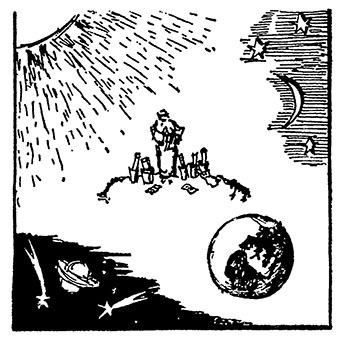
Aristotle
亚里士多德十八岁那年就离开了马其顿的家乡,来到雅典聆听柏拉图的讲课。他毕业后,在许多地方授课,直到公元前三三六年回到雅典,在阿波罗神庙附近的一座花园里开办了自己的学堂。这就是亚里士多德哲学授课学园,它吸引了世界各地的学生。
奇怪的是,雅典人并不愿意在自己的城堡里多建一些学园,那时,城邦开始丧失其传统的商业重地的作用。精力旺盛的市民都搬迁到亚历山大港、马赛和其它南方和西方的城市。剩下没有出走的都是些不名一文或懒惰成性的人。他们是老一辈自由民中最墨守陈规的一派人的残余。这一派人既为苦难深重的共和国增了辉,又导致了它的毁灭。他们对柏拉图学园里发生的一切没有什么好感。在柏拉图去世的十多年以后,他的最著名的门生竟然重返故土,继续讲授那些仍然不为人们接受的关于世界起源和神明威力有限的教义。对此,老守旧派的人煞有介事地摇起头来,低声咒骂他把城邦变成了思考自由和不拘信仰的场所。
如果这些守旧派一意孤行,就会把这位门生赶出国境。但是他们明智地克制了自己。这是因为,这位身体健壮、两眼近视的绅士以饱览群书和衣着讲究而闻名,是当时政治生活中举足轻重的人物,可不是一两个流氓打手就能随意赶出城邦的无名小辈。他是马其顿宫廷医生的儿子,和皇子们一起受过教育。他刚一结束学业,就担任了皇储的家庭教师,整整八年的时间,他每天都和年轻的亚历山大形影不离。这样,他赢得了亘古以来最强大的统治者的友谊和帮助,在亚历山大去印度前线期间,掌管希腊各省的摄政王对他倍加关怀,生怕有人伤害了这位帝国主宰的挚友。
然而,亚历山大去世的消息一传到希腊,亚里士多德的生命便陷入了险境。他想起了苏格拉底的遭遇,不愿意再重蹈他的厄运。他象柏拉图那样,谨慎地避免把哲学和现实政治混为一谈。但是,他对政府的民主形式的厌恶和对平民掌权的不信任是众所周知的。他看到雅典人爆发出冲天怒火,把马其顿的守卫部队赶跑了,便度过埃维亚海峡,来到卡尔希斯。在马其顿人再次征服了雅典、惩治了叛乱的前几个月,他离开了人世。
多少个春秋过去了,现在要追根究底地找出亚里士多德被指控不忠诚的确实背景,真是谈何容易。不过按照一般情况,在一个业余演说家充斥的国度里,他的活动必然与政治盘根错节地纠缠在一起。他不得众望,与其说是因为散布了会使雅典遭受宙斯严厉惩罚的骇人听闻的新异端邪说,到不如说是由于他对偏见很深的少数几个地方实力派采取了蔑视态度。
不过,这个背景材料是无关紧要的。
各自为政的小城邦共和国已经末日临头了。
过后不久,罗马人继承了亚历山大在欧洲的业绩,希腊人从此变成了他们众多省份中的一个。
争执斗口到此结束,因为罗马人在许多事情上甚至比黄金时代的希腊人还要宽容。他们容许臣民自由思考,但是不允许人们对政治上的某些随机应变的原则提出质问,因为罗马政权之所以从史前时期就能保持繁荣安定,全都仰仗这些原则。
和西塞罗同一代的人所具有的思想同帕里克利的追随者所推崇的理想之间存在着微妙的差别。希腊思想体系的老一代领袖人物把其宽容精神基于某些明确的结论上,这些结论是他们经过数世纪认真实践和苦思冥想总结出来的。而罗马人却认为,他们用不着从事这方面的探讨。他们对理论问题漠不关心,还把这种态度引为自豪。他们对实用的东西感兴趣,注重行动,看不起高谈阔论。
如果异国人愿意在下午坐在老橡树下,讨论统治的理论或者月亮对海潮的影响,罗马人是欢迎的。
但是,如果异国人的知识可以付诸实践,那便会受到罗马人的重视。至于谈经论理,连同唱歌、跳舞、烹调、雕塑和科学一类玩艺儿,最好还是留给希腊人或其他外国佬,大慈大悲的丘庇特创造了他们,正是为了让他们去摆弄这些正统的罗马人不屑一顾的东西。
罗马人则要全力以赴地掌管好日益扩大的领土,训练足够的外籍步兵和骑兵,以保卫边沿省份,巡查沟通西班牙和保加利亚的交通要道。他们通常要花费很大精力来维持数以千计的不同部落和民族之间的和平。
但是,荣誉桂冠毕竟还是要送给无愧于这个称号的人。
罗马人通过精心的工作,创建了一个庞大的统治系统,这个系统以这样或那样的形式,一直延续到今日,这个功劳是很伟大的。那时的臣民只要缴纳必要的赋税,表面上尊重罗马统治者定下的为数不多的行动准则就可以享受广泛的自由。他们可以随心所欲地相信某事或不相信某事,可以信仰一个上帝,也可以信仰十几个上帝,甚至崇拜任何装满上帝的庙宇,这没有关系。但是,不管人们信仰什么,在这个世界范围的大帝国里,混居着的形形色色的人们必须永远记住,“罗马和平”的实现有赖于公正地实践这样一条原则,“待人宽则人亦待己宽。”他们在任何情况下都不得干涉别人或自己大门内的陌生人的事情。即使偶然认为自己信仰的上帝被亵渎了,也不必找官府寻求什么解脱,因为,正如台比留大帝在一次值得纪念的场合说的那样:“如果那位上帝认为必须补偿他所蒙受的损失,他一定会自己关照的。”
靠了这样一句不足道的话,法庭就可以拒绝处理所有这类案子,并要求人们不要把涉及个人见解的问题带进法庭。
如果说一群卡帕迪西亚商人在哥罗西人的地盘居住的时候有权利继续信仰自己的上帝,并在哥罗西镇子里建筑起自己的庙宇,那么,哥罗西人为了类似原因搬到卡帕迪西亚人的地盘落户时,也必须得到同样的权力和同等的信仰自由。
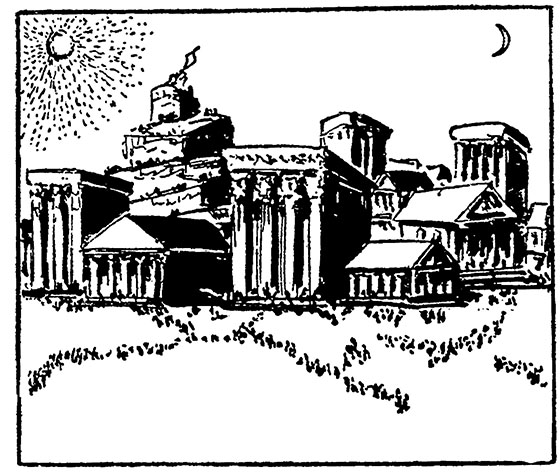
对立的宗教
人们时常争辩说,罗马人之所以能够摆出一副至高无上的宽容姿态,是因为他们对哥罗西人、卡帕迪西亚人以及其他所有野蛮部落的人都持有同等的轻蔑态度。这可能是正确的。我对这一点没有把握,但是,在整整五百年中,宗教上的彻底宽容一直盛行于文明和半文明的欧洲、亚洲和非洲的绝大部分地区。罗马人发展了一种统治艺术:最大限度地减少磨擦,从而获取巨大的实际成果,这一切也毕竟是事实。
但永存的东西是没有的,至少靠武力建立起来的帝国是不能长久的。
罗马征服了世界,同时也毁灭了自己。
罗马帝国年轻战士的白骨,被扔在数以千计的战场上。
在差不多五个世纪中,社会的精华都把智慧浪费在管理从爱尔兰海到黑海的殖民帝国这个巨大的工作中。
最后,恶果出现了。
以一城为邦统治全世界,这个不可能完成的事业在人力和脑力上把罗马拖垮了。
随后,又发生了一桩可怕的事。人们逐渐厌恶了生活,失去了生活的热情。
他们已经占有了所有的城乡住房,拥有了他们希望得到的全部游艇和马车。
他们拥有了全世界的奴隶。
他们尝遍了全世界的美酒,踏遣了绿水青山,玩遍了从巴塞罗那到底比斯的所有女人,世间所有的文字书籍在他们的藏书室里都能找到,他们家的墙上挂满了最美丽的图画。他们吃饭的时候有世界上最卓越的音乐家为他们演奏。他们在童年时曾由最出色的教授和教育家为他们上课,使他们学到了所有应该学到的知识。结果,所有的美味佳肴都失去了味道,所有的图书都变得乏味,所有的女人都失去了魅力,甚至生存本身也成为一种负担,很多人宁可获取一个体面的机会使自己丧生。
剩下的只有一种安慰:对未知和无形世界的遐想。
然而,旧的上帝已经死去多年了,有头脑的罗马人是不会轻信那些在幼儿园里教唱的歌曲里对丘比特和米纳瓦的赞颂的。
享乐主义学派和犬儒学派的哲学体系已经出现,这些哲学体系宣扬仁爱、克己和无私的美德,宣扬一生要有益于他人。
但是,这些哲学思想过于空洞。塞诺、伊壁鸠鲁、爱克比泰德和普卢塔克的书在街头书店里比比皆是,书里面讲的倒是娓娓动听。
不过从长远的观点看,这种纯理性的教义缺乏罗马人所需要的营养,他们开始追求一种可以作为精神食粮的“情感”。
由此说来,纯哲学色彩的“宗教”(如果我们把宗教思想和追求有益高尚生活的愿望联系起来,这确是一种哲学色彩的宗教)只能取悦于一小部分人,这些人几乎都属于上流社会,早已经饱享能干的希腊老师对他们个别授课的特殊待遇。
普通老百姓却视这些冠冕堂皇的哲学思想如草芥。他们的想法也发展到了这样的阶段,认为大部分古代神话都是粗俗愚昧的祖先幼稚的产物。但是他们还赶不上那些所谓的知识高人,还不能否认上帝的存在。
于是,他们采取了所有知识浅薄的人在这种环境中会采取的行动:表面上还一本正经地推崇共和国官方认可的上帝,背地里却为了寻求真正的幸福而拜倒在某个宗教行会的脚下,在过去两世纪中,这种宗教行会在台伯河畔的古城里开始受到了真心诚意的欢迎。
我前面用的“行会”一词源于希腊,原意是一群“受到启示的”人——这群男女为了不把本行会最神圣的秘密泄露出去,必须做到“守口如瓶”。只有他们才能知道这些秘密,这种行会就象大学兄弟会的咒符一样使人们结合在一起。
其实,在公元一世纪的时候,行会只不过是一种崇拜形式,一种说法,一种教派。一个希腊人或罗马人(这里请原谅时间上的略微混淆)已经离开长老教会加入基督科学教会,便会告诉别人他去参加“另一个行会”去了。“教堂”、“英国北部教会”和“贵族院”相对来说是新发明的词汇,在当时可无人知晓。
如果你对这个问题特别感兴趣,想弄明白当时罗马的情况,就请在下周六买一份纽约报纸看一看,任何一份都行。你会看到四五栏关于从印度、波斯、瑞典、中国以及其它十多个国家引进的新教旨和新处方的广告,这些广告旨在给人们以健康、富有和得到灵魂永恒拯救的希望。
罗马与我们如今的大都市一样,充斥着外来和本地的宗教。这也不可避免,因为它与世界各地有着千丝万缕的联系,从小亚细亚北部覆满青藤的山上开始了对神母的崇拜,弗里基亚人把神母尊崇为所有天神之母。伴随这种对神母的崇拜的是一些不合乎礼仪的表达感情的放荡形式,这使罗马当局不得不诉诸武力关闭神母庙,最后还通过了一项果断的法律,禁止进行任何传教活动,因为这种宗教只会鼓励公众豪饮和做出更糟的事情。
埃及这块充满自相矛盾和神秘色彩的古老土地,为人类提供了五六个怪诞不经的天神,奥赛利斯、塞拉皮斯和爱西斯在罗马时代就象阿波罗、迪梅特和赫耳墨斯一样被人所熟悉。
至于希腊人,他们在若干世纪之前就把抽象真理和行为法典的雏型体系奉献于世。这时,他们又向坚持偶像崇拜的异国居民提供了远近闻名的艾蒂斯、迪奥尼修斯、奥尔费斯和艾多尼斯的“宗教行会”。从公共道德的角度来说,这些神明中没有一个是尽善尽美的,不过他们却颇受到人们的欢迎。
在整整一千年里,腓尼基商人常常光顾意大利海岸,使罗马人熟悉了他们的上帝巴尔(耶和华的不共戴天之敌)和上帝的妻子艾斯塔蒂。为了这位奇妙的女神,所罗门在老年时在耶路撒冷中心建造了一个“高坛”,使他忠诚的臣民大为震惊。这个令人敬畏的女神在争夺地中海的第一把交椅的漫长苦战中,一直被公认是迦太基城的庇护者,她的庙宇在亚洲和非洲都打碎以后,她又俨然以基督教圣人的身份重新回到了欧洲。
不过,还有一个最为重要的神。他的名望誉满全军。在从莱茵河口到底格里斯河源的罗马边境线上,每一堆残砖破瓦之下都会发现他的破碎金身。
这就是伟大的米思拉斯神。
据我们所知,米思拉斯原是司管光、空气和真理的亚洲神,在里海低地平原饱受香火。我们的鼻祖占有了那片牧草肥沃的土地,使人类在山峰峡谷之间得到了栖身之所,这里以后便成为人所共知的欧洲。这个天神给予人类各种美好的东西,大家相信,这块土地的统治者得以施展权力,完全是依靠万能的天意。米思拉斯终日处在天火之中,有时他把一缕天火降在身居高职的人们的身上,作为天恩的象征。他虽然早已离去,连名字也被忘记了,但是自中世纪起,那些仁慈的圣人们头上的光环就足以向我们提示早在教堂问世一千年之前的一个古老传统。
尽管米尼拉斯在很长时间内深得人们的崇敬,但人们要稍微准确地了解他的一生却仍然非常困难。这是事出有因的。早期基督教传教士对米思拉斯神话恨之入骨,其程度百倍于对一般神话的仇恨。他们明白印度神是他们最凶恶的对手,便竭尽能事,毁掉一切可以使人们记忆起他的东西,他们的努力大见成效,所有米思拉斯的寺庙荡然无存,这个宗教在五百年中曾经盛行于罗马,就象今日美以美教派和长老会在美国盛行一样,这时却连一张文字记载的纸片都没有留下。
不过,当时炸药还没有发明,建筑物不可能被彻底铲平,人们通过仔细搜索一些废墟和从几个亚洲古地得到的资料,填补了这个空白,以至现在已经掌握了有关这个有趣天神及其轶事的相当准确的情况。
米思拉斯的故事要追溯到很久很久以前。一天,米思拉斯神秘地从一块岩石中脱胎而生。他睡在摇篮里,附近几个牧羊人过来向他参拜,还送礼逗他高兴。
米思拉斯在孩提时代就经历了形形色色怪异的冒险,其中很多事情使我们想起了使赫尔克里斯成为希腊孩子们心目中的英雄的业绩,不过,赫尔克里斯残酷暴虐,而米思拉斯总是与人为善。有一次他与太阳神角逐,把他打翻在地,但是他尽管得胜了,却豁然大度,使太阳神和他如手足兄弟一样,以致旁人常常将二人混淆起来。
当罪恶神降下一场干旱、意欲毁灭整个人类的时候,米思拉斯一箭射向一块岩石,顿时水如泉涌,冲向干裂的土地。继而,艾赫里曼(这是罪恶神的名字)又想以一场大水达到其卑鄙目的。米思拉斯得知后,就告诉了一个人,让他造一只大船,把亲属和家禽都带上,这样又把人类从毁灭中挽救出来。他为了拯救人类,使之不因自身的各种弊病而遭到恶报,竭尽了力气,然后又升入天国,永操掌管正义和公正的大权。
当时有谁要想加入崇拜米思拉斯的行列,就必须通过一种仪式,吃一些面包和酒做为礼餐,来纪念米思拉斯和他的朋友太阳神一起用的著名晚餐。接着,必须在水前接受洗礼,做很多我们现在看来是毫无意义的事情,这种宗教形式早在一千五百年前就寿终正寝了。
一旦加入崇拜米思拉斯的行列,所有虔诚信徒都被一视同仁。他们一起在同一个烛光明亮的祭台前祷告,唱同一支赞美诗,一同参加每年十二月二十五日的节目,以庆祝米思拉斯的生日。而且他们在每周的第一天不做任何工作,以纪念那位伟大的天神,直到今天,我们仍然称那一天为“星期日”。他们死后,尸体要摆放整齐,等到最后审判日,好人得到公正的报答,恶人则被掷入不息的烈火中。
这些五彩缤纷的神话的成功和在罗马士兵中米思拉斯精神的深远影响,表明人们对宗教是非常感兴趣的。实际上,罗马帝国在最初几个世纪里,一直不停地寻找能够在精神上使大家感到满足的东西。
到了公元四七年,发生了一件事。一叶扁舟离开了腓尼基,驰向佩加城,该城是通往欧洲各条道路的起点。乘客中有两个人,他们没有带行李。
他们的名字是保罗和巴纳巴斯。
他们是犹太人,但其中有一个人持有罗马护照,还通晓非犹太族人的智慧。
这是一次永垂青史的旅程的开始。
基督教开始征服世界了。

Greece

commercial city

philosopher

greek legend

astronomer

Protagoras

Socrates

death of socrates

柏拉图学园

Aristotle

对立的宗教
